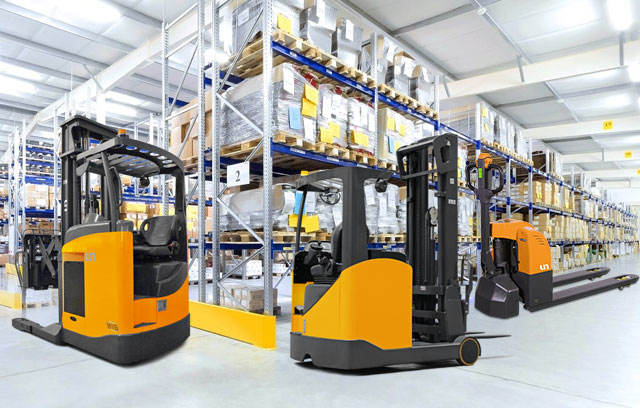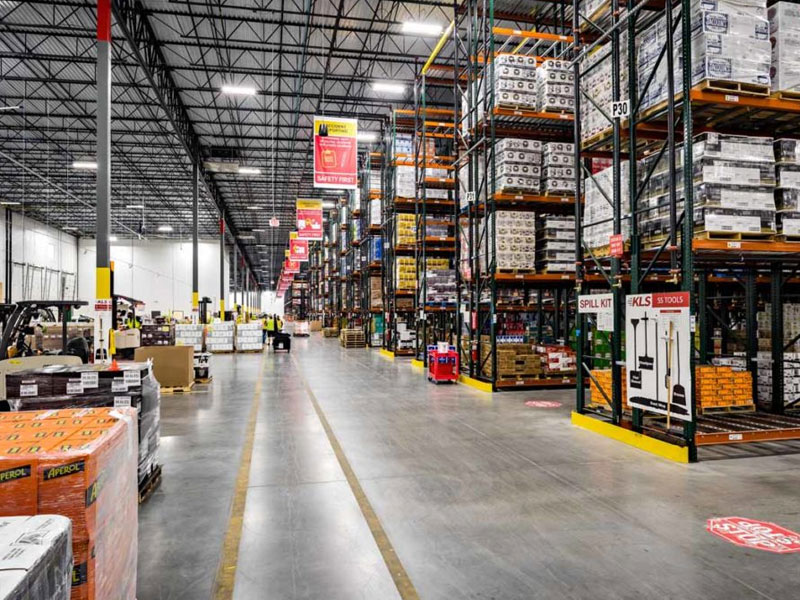The Rise of Electric Forklifts
The ascent of electric forklift in the material handling industry is not merely a trend but a reflection of a broader movement towards sustainable and efficient operational practices. As businesses seek to reduce their carbon footprint and improve indoor air quality, electric forklifts offer an attractive alternative to traditional internal combustion (IC) models.
Environmental Impact and Sustainability
Electric forklifts are inherently more environmentally friendly than their IC counterparts. By eliminating exhaust emissions, they contribute to improved air quality within warehouses and manufacturing facilities. This aligns with global efforts to reduce industrial pollution and adhere to stricter environmental regulations.
Moreover, electric forklifts operate quietly, reducing noise pollution—a significant advantage in maintaining a safe and comfortable work environment.
Cost-Effectiveness and Efficiency
Though the initial investment in electric forklifts may be higher, their long-term cost benefits are substantial. They require less maintenance—no engine oil changes, fewer moving parts, and less frequent brake replacements—resulting in lower operational costs over time.
Additionally, electric forklifts are known for their energy efficiency. With advancements in battery technology, such as lithium-ion batteries, these forklifts offer longer operational hours and shorter charging times, enhancing productivity and efficiency.
Electric Forklift Pricing and Sales
Understanding Electric Forklift Pricing
Pricing for electric forklifts varies based on several factors, including capacity, battery type, and additional features. While the upfront cost may be higher than traditional forklifts, the return on investment is realized through reduced fuel costs and maintenance expenses.
Businesses should consider total cost of ownership (TCO) when evaluating electric forklift purchases. TCO encompasses not only the purchase price but also operational and maintenance costs over the equipment's lifespan.
Navigating Electric Forklift Sales
Engaging with reputable forklift suppliers who specialize in electric models is crucial. These suppliers can provide insights into the latest models, offer competitive pricing, and ensure that the forklifts are suited to specific operational needs.
Key Considerations for Buyers
*Capacity and Load Requirements: Ensure the forklift meets the weight and size requirements of your typical loads.
*Battery Technology: Evaluate the benefits of lead-acid versus lithium-ion batteries.
*Supplier Reputation: Choose suppliers with a proven track record in electric forklift sales and support.
Electric Forklifts in Wholesale and Supply Chain
The role of electric forklifts extends beyond individual businesses to impact the broader supply chain. Forklift suppliers that provide electric models at wholesale offer significant advantages for distribution centers and logistics companies.
Streamlining Supply Chain Operations
Electric forklifts contribute to streamlined supply chain operations by enhancing efficiency and reducing downtime. Their reliability and low maintenance needs ensure that they remain operational for longer periods, minimizing disruptions in supply chain activities.
The Future of Material Handling with Electric Lift Trucks
Innovations in Electric Lift Trucks
As technology advances, the capabilities of electric lift trucks continue to expand. Innovations such as telematics systems, which provide real-time data on forklift operations, and automated guided vehicles (AGVs), which integrate seamlessly into automated warehouses, are setting new benchmarks in material handling efficiency.
Embracing Green Technology
For green technology advocates, the adoption of electric forklifts represents a commitment to sustainability and environmental responsibility. By prioritizing electric models, businesses not only reduce their environmental impact but also position themselves as leaders in sustainable practices.
Market Position and Industry Trends
Electric forklifts are poised to dominate the material handling industry, driven by increasing demand for eco-friendly solutions and technological advancements. Businesses investing in electric models are well-positioned to capitalize on these trends and enhance their market standing.











 中文简体
中文简体 عربى
عربى Español
Español














